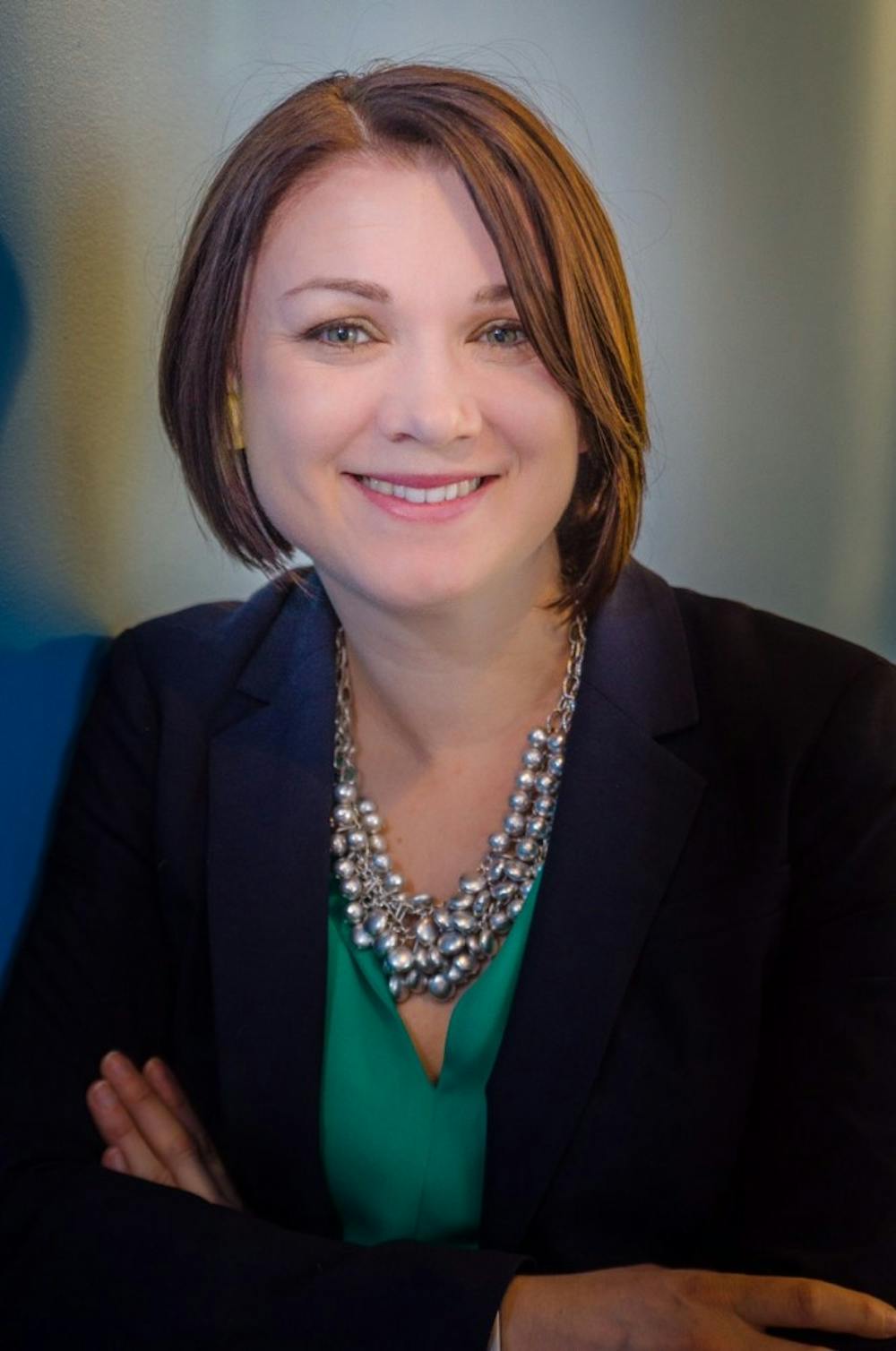NPR White House Correspondent Tamara Keith didn’t always want to work as a journalist. In the sixth grade, Keith won a writing competition where she wrote about how she wanted to pursue a career as a volcanologist and study volcanos when she grew older. After her victory in the writing competition, her local TV station wrote a story on her, and her interview with the station ignited her passion for journalism.
At NPR, Keith has interviewed Bernie Sanders three times and currently covers Hillary Clinton’s candidacy for president. She said her job has offered some pretty cool perks such as flying on Air Force One with President Barack Obama.
Keith’s love of NPR started as a toddler when she listened to the radio station in the back seat of her parent’s car. At 15, she wrote a letter to a few NPR personalities asking for mentorship and advice on how to start a career in radio. She received responses from NPR “Morning Edition” journalist Cokie Roberts, who advised her not to major in communications, as well as from journalists Scott Simon and Liane Hansen of “Weekend Edition” at NPR. Simon invited Keith’s family to his home, and he advised her to major in philosophy. Hansen offered her the opportunity to become a teen essayist for NPR’s “Weekend Edition Sunday.”
Keith took both Roberts’ advice and Simon’s advice and chose to major in philosophy instead of journalism. Keith attended the University of California at Berkeley, where she graduated in just three years. Her dad teased her about the practicality of her major and joked that she would open a ‘philosophy shop’ in Whole Foods, but Keith said she doesn’t regret her major at all.
“[Philosophy is] not like underwater basket weaving, it’s a very serious major,” Keith said. “You learn how to think, you learn how to break down arguments, how to look for the flaws in what people are saying and how to ask really good questions.”
After graduating, Keith enrolled in UC Berkeley’s Graduate School of Journalism at the age of 19, making her the youngest student to ever enroll in the school. During the summer between her first and second year of graduate school, Keith had the opportunity to direct the California Report, a daily statewide radio news program, for KQED, a public radio station in San Francisco, California.
Keith worked in a variety of additional journalism jobs after her time at KQED, including a temporary gig at NPR and a job in Ohio for WOSU, before she moved to D.C. and was hired by NPR. She started out covering business, then moved on to congressional reporting and finally accepted a job as the station’s White House Correspondent.
She said she feels most proud of a series she did for NPR back in 2011 called “The Road Back to Work.” For this project, she had six people record audio diaries over the course of a year while they looked for jobs. Keith said she worked on this project because she wanted her listeners to hear personal experiences from individuals who faced unemployment rather than just looking at unemployment rates and numbers.
“It was really intense,” Keith said. “What I learned was that it didn’t end after finding a job--the emotional impact of being long-term unemployed.”
Although Keith said her job takes a lot of time and often places a political target on her back, she feels rewarded when she tells stories to millions of people.
“There is something really compelling about the human voice,” Keith said. “I think radio is far more agile than television, [and] it spurs the imagination like a good novel does.”
Keith acknowledges the fact that her job isn’t always exciting. She said she knows that society highlights the decline of print journalism and the oversaturation of journalism, a message that shines a negative light on the field.
“There is this sense that covering the White House is very glamorous, and you’re hanging out with the president and talking to the president all the time,” Keith said. “The reality is my office is in a basement at the White House—I’ve gotten mosquito bites in my office. It’s a little swampy down there.”
Despite the long hours in the office, Keith still encourages aspiring journalists to pursue their passions and not let the negative aspects of the job turn them off from journalism.
“I just think the way we do our jobs might change, but what we do is still very important, so don’t let people tell you no,” Keith said. “Being young is not about being practical.”
Follow @adenamio




